
In 2012 the World federation of Occupational Therapists set out to define Occupational Therapy as
“Occupational therapy is a client-centred health profession concerned with promoting health and well being through occupation. The primary goal of occupational therapy is to enable people to participate in the activities of everyday life. Occupational therapists achieve this outcome by working with people and communities to enhance their ability to engage in the occupations they want to, need to, or are expected to do, or by modifying the occupation or the environment to better support their occupational engagement” WFOT 2012
but this global definition is shaped by our own nations professional bodies through standards of practice and conduct. In the UK, we work within the Royal College of Occupational Therapy standards for practice and Health Care Professions Council standards of proficiency for occupational therapists and standards of conduct, performance and ethics but what does this mean in daily practice and how do we support new entrants in our occupational therapy courses to start to understand what occupational therapy looks like in their own culture and across the globe?
So we set our new students a challenge, to explore international perspectives of occupational therapy and we hope that you will participate with them from where ever you are across the globe. Bringing the world of occupational therapy together, to share and discuss what occupational therapy looks like where you are.
What does occupational therapy look like where you are?
The task we have set our first year occupational therapy cohort is to explore international perspectives of occupational therapy and this BLOG is one avenue that we hope will provide them with the opportunity to discuss with occupational therapists, fellow students and perhaps even those with work with or interact with occupational therapists. The purpose of this activity is for our new students to develop an appreciation of the underpinning values, skills of occupational therapy and how differing cultures may influence this across the profession and in practice.
We have posed four overarching topics for discussion across the next three weeks under the umbrella of
What does occupational therapy look like where you are?
- What are the responsibilities of an occupational therapist ?
- What are the values of occupational therapy?
- What skills do occupational therapists have?
- How does culture influence occupation?
Creating the dialogue
To take part in the dialogue all you need to do is use the comments space below and use the following tags #responsibility #values #skills #culture #occupation. We would love to start conversations with you about occupational therapy and what influences your practice. If you want to join us in creating this dialogue across the world we would love to hear from you.

We are also embedding this discussion on twitter so if you want to take part on there we are using the following umbrella hashtag of #4001OT. The twitter feed as you will see will be live on this blog too.
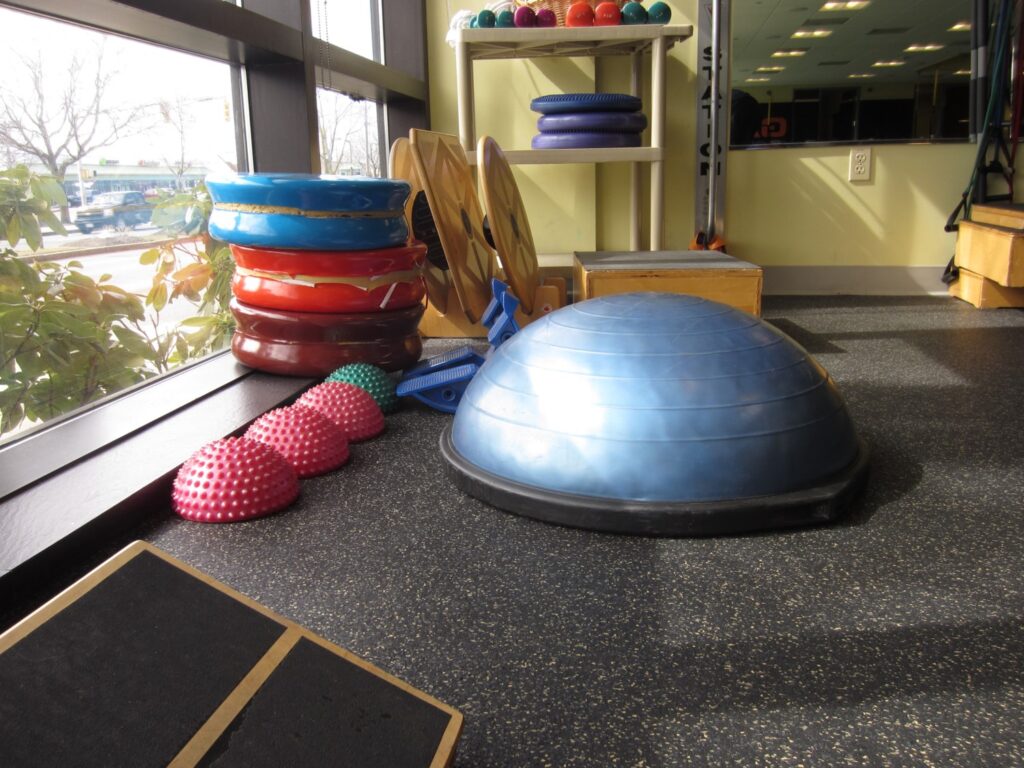
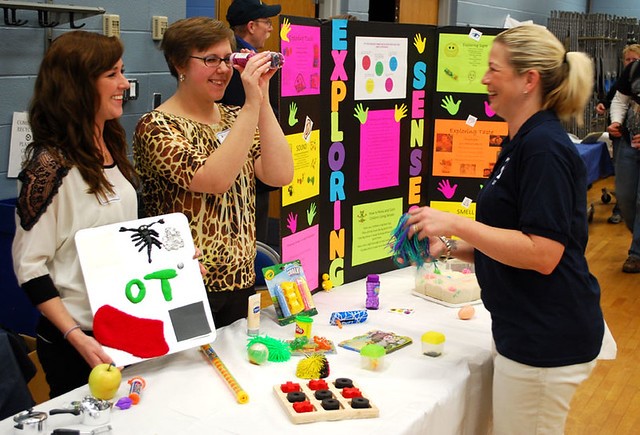
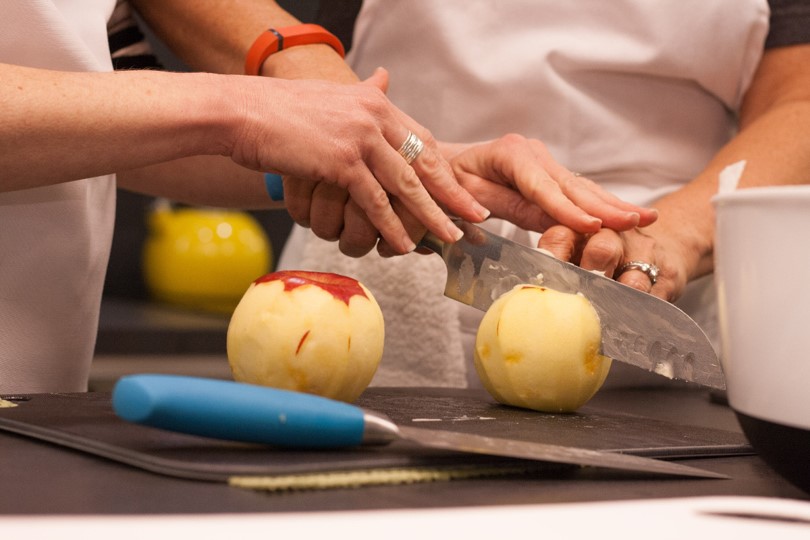
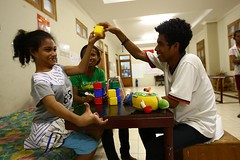

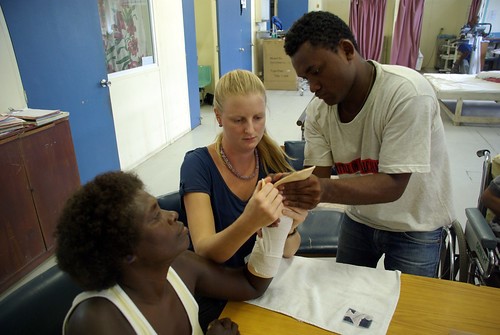
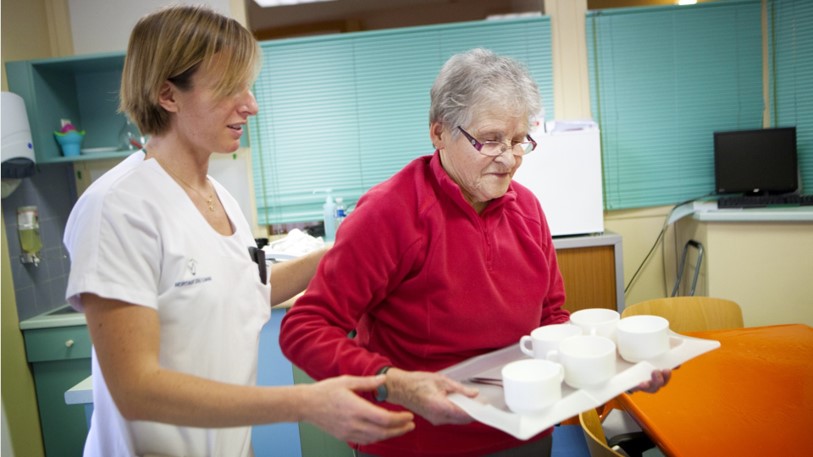

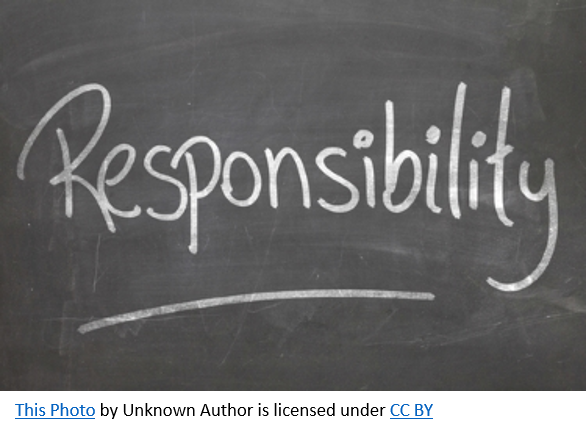
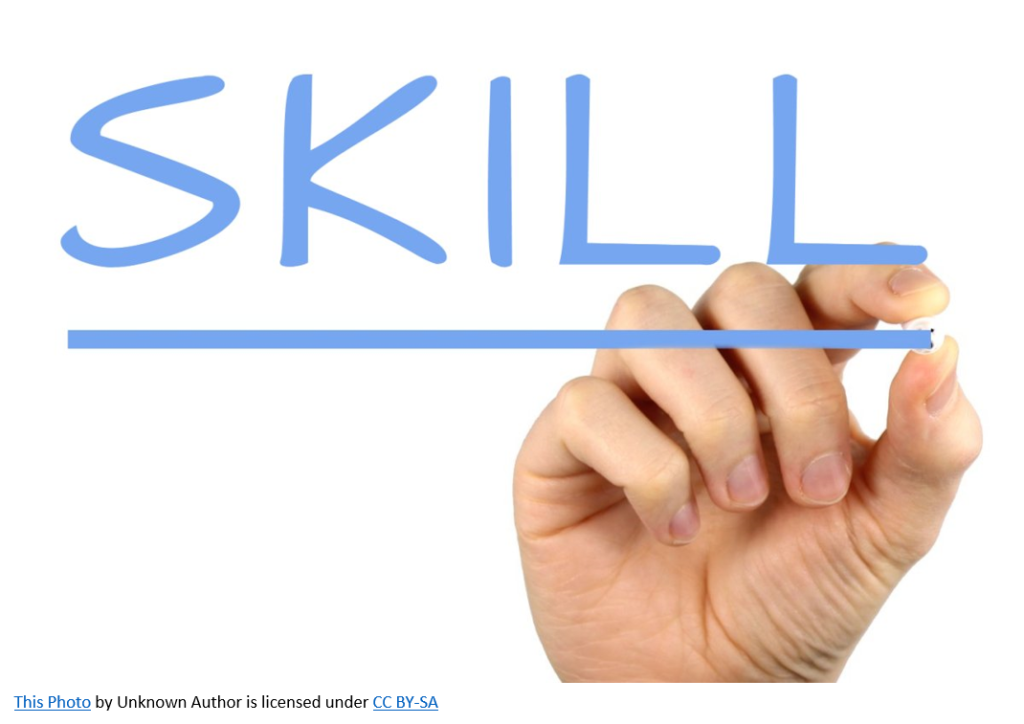



Lucy
6 October 2020 — 4:32 pm
OT without borders works with low and middle income countries which is really good because it gives everyone the same chance to access the positive changes occupational therapists bring to the community.
Chloe, Luke, Rosie
6 October 2020 — 4:37 pm
Hi everyone we’re first year students from Coventry University and looking to connect with qualified and student international Occupational Therapists. We’re interested in finding out the skills, values and responsibilities which you incorporate within your practice and how your culture affects this.
we are looking forward to your responses,
Chloe, Luke and Rosie.
Courtney van heerden
23 October 2020 — 8:17 am
Hi. My name is Courtney van Heerden. I am a 1st year Occupational therapy at the University of the Western Cape in South Africa. I would like to be in contact with you and to gain more perspective of OT in your region.
laura chatfield
8 February 2021 — 3:53 pm
Hi Courtney my name is Laura i am a first year student from Coventry University in London and looking to connect with qualified and student international Occupational Therapists.
I would like to connect with you and gain more perspective of how OT is implemented in your region.
Bill Wong
7 October 2020 — 9:08 pm
In my setting in answering these questions-
1. What are the responsibilities of an occupational therapist ?
A1. Perform clinical evaluations when patients are admitted from hospitals or nursing report change of conditions of the patients when they are off therapy services, complete weekly progress reports and discharge summaries, supervise occupational therapy assistants and aides (In USA, our OT assistants are qualified.), provide treatments to patients. If occupational therapist is director of rehab at the nursing home, they also are responsible for administrative tasks of the rehab department, too.
2. What are the values of occupational therapy?
A2. The values would be- Integrity, family-centered, client-centered
3. What skills do occupational therapists have?
A3. Charisma, passion, desire to improve and learn, responible and reliable, good abilities to articulate clinical reasoning, mental flexibility aside from clinical skills.
4. How does culture influence occupation?
A4. It can affect how people perceive and perform occupations.
Rosie Gray
8 October 2020 — 9:24 am
Hi Bill.
Thanks for your comment. Those are some really great OT skills, I hope they can be found in OT practices all over the world. Have your values of OT always been the same? Have they changed and developed as you progressed through your career and do you think any are influenced by your culture in the USA?
Thanks, Rosie
Bill Wong
17 October 2020 — 10:28 pm
I think they should be some of the core values we should have, no matter what setting they are in.
kim Stuart
9 October 2020 — 8:34 am
Thanks Bill, we appreciate the time you have taken to engage with us in exploring global perspectives of occupational therapy
grace
9 October 2020 — 12:39 am
Hi Everyone, what a wonderful idea!
Here are some humble thoughts of an OTs role in regional Australia.
1.What are the responsibilities of an occupational therapist ?
Very generally, To provide a safe and accepting service that is person-centred/ family- centred service to enable individuals and their loved ones to engage to the best of their ability in those activities and occupations they find meaningful and valuable.
Depending on the setting we can provide services to inpatients, outpatients, paediatrics in schools and the home, hand therapy, burns management, pressure care management, home mods and so on. In my current role I also service correctional facilities. We need to provide evidence based and inclusive services to all individuals.
In Australia we are required to uphold standards as set by our national Occupational therapy board.
2.What are the values of occupational therapy?
Integrity, cultural inclusivity and learning, excellence, collaboration etc.
3.What skills do occupational therapists have?
Clinically, many, especially as a regional/ rural therapist when you need to provide for many areas. However I believe in the main skills as OTs is to be flexible, creative and innovative. We can see challenges in peoples lives and come up with very individual and unique ways to help them feel more empowered and in charge of their lives.
4.How does culture influence occupation?
Our culture can influence which occupations we find meaningful, the way we go about them and our expectations for performance. There are always going to be changes in an individuals needs, even if they live in the same city, because of their belief systems. Culture can change the way we perceive independence, many western cultures promote the idea of being independent and this is their aim in therapy, however across cultures independence isn’t always the most important, especially when you are working in communities that are closely integrated and there is often more support within the community. Regardless of your own beliefs, it is important to truly listen and learn from others and provide services that the individuals wants and needs, not the service we think they need because of our own belief system.
kim Stuart
9 October 2020 — 8:33 am
Thanks Grace for your time to comment on the post – we are hoping this will enable us to think globally about our profession.
Paula Dring
19 October 2020 — 8:56 am
That is really interesting Grace. With some of the clients I have worked with there was a huge expectation by older generations that the younger members of the family would care for them in a very practical way without external intervention. This was the cause of some frustration and upset as the younger members of the family did not feel this obligation, they had simply not grown up in that culture.
Sarah Heneghan
1 November 2020 — 7:00 pm
Hi, my name is Sarah and I am a student OT from Ireland. I found this very piece very educational and loved to read about an OT from Australia how would you describe OT in your own words? Furthermore, what do you find most about being challenging about OT?
Sarah Heneghan
1 November 2020 — 7:23 pm
Hi, my name is Sarah I am a student OT from Ireland. I loved reading about an OT from Australia. What do you find most challenging about OT? also how would you describe it in your own words?
Thanks,
Sarah
Annabel Davies
9 October 2020 — 12:04 pm
Hi my name is Annabel
I too am a first year student at Coventry university on the apprenticeship route.
As with Rosie, Luke and Chole (see previous comments) asking questions around the skills, values, responsibilities and culture of occupational therapists from around the world.
Linking with other countries and understanding their own cultures when working with clients/service users, understanding their own core values, skills and responsibilities other professionals have to follow is very interesting. Thinking globally about our profession and sharing information is so important.
I too would like to hear about other cultures, core values and skills and the responsibilities OT’s have to follow, would be great.
I look forward to hearing from you – linking up as OT Pen Pals.
Annabel Davies
9 October 2020 — 12:07 pm
Many thanks to Grace and Bill for your replies and taking your time to share information.
Very much appreciated.
Evita Asare-Gyimah
10 October 2020 — 2:19 am
Hello Everyone, my name is Evita I’m a first year student at Coventry University and I would like to have a discussion with registered OT/student OT from international countries about environmental dimension that they experiences as OT . Also their responsibilities, skills and values they must uphold as an OT in there country.
I have written a list of Questions, that I would appreciate voluntary answers to.
Do your cultural beliefs affect how you create an occupational activity for service users?
How does OT values influence your cultural beliefs?
What are you OT values?
What type of occupational responsibilities do you have?
What is your code of conducts?
How are you able to reflect on practice?
Is it mandatory to reflect as an occupational therapist where you are?
What type of occupational filed are you in?
Where do you practice?
What are the core skills as an OT?
How long does it take to be a registered OT?
How do you get to practice?
Are there any environmental practice that affect you from being an OT?
Is being an OT a high regard profession within your environment?
What are your working hours?
Are you able to form social relationships within your practice (personal/professional) ?
Why did you want to be an occupational therapist?
Do you feel like occupational therapy gives you a sense of meaning?
Are their any deprivations that affect you from being an occupational therapist?
Evita Asare-Gyimah
10 October 2020 — 2:48 am
Hello Everyone, my name is Evita I’m a first year student at Coventry University and I would like to have a discussion with registered OT/student OT from international countries about environmental dimension that they experiences as OT . Also their responsibilities, skills and values they must uphold as an OT in there country.
I have written a list of Questions, that I would appreciate voluntary answers to.
Do your cultural beliefs affect how you create an occupational activity for service users?
How does OT values influence your cultural beliefs?
What are you OT values?
What type of occupational responsibilities do you have?
What is your code of conducts?
How are you able to reflect on practice?
Is it mandatory to reflect as an occupational therapist where you are?
What type of occupational field are you in?
Where do you practice?
What are the core skills as an OT?
How long does it take to be a registered OT?
How do you get to practice?
Are there any environmental practice that affect you from being an OT?
Is being an OT a high regard profession within your environment?
What are your working hours?
Are you able to form social relationships within your practice (personal/professional) ?
Why did you want to be an occupational therapist?
Do you feel like occupational therapy gives you a sense of meaning?
Are there any deprivations that affect you from being an occupational therapist?
Thank You!
Natalie Thompson
10 October 2020 — 2:35 pm
Hi! My name is Natalie. I am a first year occupational therapy student at Coventry University. I have started a project – OT Pen Pals and I would like to gather some information from registered occupational therapists and occupational therapy students around the world about the profession and practice. I would be hugely grateful if you could answer some of the following questions:
1) How did you get into occupational therapy?
2) What qualifications do you need in your country to be able to train as an occupational therapist?
3) How long is the training to be an occupational therapist? Can this training be on the job learning or do you have to attend university/college?
4) What skills do you think contribute to being a good occupational therapist?
5) What responsibilities and values do you think you have/need to be an occupational therapist?
6) What are that cultures that are adopted within occupational therapy within your country?
7) How would you define your role as an occupational therapist?
8) What field of practice are you able to work in as an occupational therapist?
9) Who is the governing body in your country?
10) Do you have to pay for your occupational therapy registration?
11) Do occupational therapists have to wear a uniform?
12) What are the working patterns of an occupational therapist?
13) Do you have an eligibility criteria to determine whether individuals are eligible for occupational therapy?
14) Do the people you work with have to pay for the service or for any equipment?
15) If you were to move to another country would you current qualification be recognised or would you have to re-train?
16) How do other professionals in your country view the role of an Occupational Therapist?
17) Do you use any particular reflection model(s) to help reflect on your practice?
Patricia Ogbeyi
13 October 2020 — 10:10 am
Hello, everyone. My name is Patricia and I’m an Occupational therapy student at Coventry university, first year. I’m hoping to connect with International OT students, and to get some information about OT practices in different countries. Please, what are the responsibilities, values and skills of OT services in your countries? Any insight about how culture affects your OT services? Looking forward to hearing from you all. Thanks.
Patricia.
Sarah Percival
13 October 2020 — 9:08 pm
Good evening, everyone! My name is Sarah and I am a first year student studying Occupational Therapy at Coventry. I’m looking for some help with my assignment if possible!
We have been tasked with gaining insight in to global perspectives of OT, specifically around the topics of values, responsibilities, culture and skills. I have compiled a few questions focused on these topics and would appreciate any information you feel able to give. There are ten questions but please don’t feel obliged to answer all of them, any insight you can provide will be gratefully received. Many thanks in advance, Sarah.
1. How do you define ‘occupation’ ?
2. We are governed by RCOT (Royal College of Occupational Therapists,) which governing body defines your code of ethics and professional standards?
3. Which skills do you consider most valuable as an OT?
4. What does being an OT mean to you?
5. What would you say are your main responsibilities within your role?
6. What kind of challenges are you likely to face whilst practicing?
7. In which setting do you work? e.g. hospital, prison, commercial office, etc
8. How do your immediate communities respond to Occupational Therapy, and would you say this varies between regions/sectors of society?
9. Are there any aspects of OT that are not practiced as widely, because they’re not considered appropriate or are well received? (such as mental health focus or therapy that requires physical contact)
10. Is OT a private service that is paid for by the individual? and if so, do you think this impacts the number and type of service users?
Keisha Sardien
16 October 2020 — 5:11 pm
1. As an OT , you are responsible for planning and providing appropriate treatment and activities for the client. You are also responsible that the clients well being will not be in in jeopardy.
2. The values of Occupational therapists commitment , consistency, efficiency as well as reliability.
3. The skills that Occupational therapists have range from patience to determination. OT’s have good team work skills as well as excellent communication skills.
4. Culture influences occupation in many ways. Ranging from which occupations our culture prohibits us from doing, to what our culture motivates us to do. Because of our culture, our occupations are influenced tremendously because it is what we are learned through our life , what is acceptable and what is not.
Keisha
16 October 2020 — 5:12 pm
Sorry guys I forgot to mention my name as well as where I attend university. I’m Keisha ! I am currently a first year student at the University of the Western Cape 🙂
Haneem Rylands
17 October 2020 — 1:42 pm
Hello everyone! I hope you are all doing well and that your studies are progressing successfully.
My name is Haneem Rylands and I am from South Africa. I am a first-year OT student, studying at the University of the Western Cape. It is exciting to hear from OT students around the world and I will try to answer your questions as best as I can.
1. The responsibilities of an OT is to provide a service to clients and their family by successfully identifying what occupations are meaningful to the client, surveying their environments and to guide them in treatment and rehabilitation. An OT should always be sure that Ethics are followed and the clients’ rights are respected. The client should be comfortable with an OT. It is the responsibility of the OT to evaluate the clients, set goals for the client and create intervention plans to work on reaching that goals. An important responsibility should be OTs in collaboration with other healthcare professionals and other OTs. Aside from the client, the OT has a responsibility to educate the clients’ families and others.
2. OTs value each client as being unique, there is respect for their dignity and their rights. We value that each client has different backgrounds, environments, beliefs and cultures. We value what is meaningful to the client and we understand their life experiences. The most important value that an OT should have is that they are now a professional, they should value their work- before valuing and understanding a client. OTs value a code of conduct (includes altruism, justice, freedom, prudence, etc.) that was created to benefit themselves and and to ensure clients’ well-being.
3. Important skills that I think OTs should have is that they should remain altruistic- always have empathy, compassion, support the client and family, put others before themselves. An OT should have good communication and collaboration- work well with others in a team. As any other professional, OTs should have problem-solving and critical thinking skills. In situations, OTs should have the skills of being able to work under pressure, remain patient and professional. Certain activities would require an OT to have physical strength as a skill. Occupational Therapy is a very creative career, therefore an OT should have that type of skill.
4. On a macroscale, in South Africa, we have many many cultures. I am from Cape Town, on a microscale is a city which is known for our many cultures. This relates a lot to our history. I live in a little bubble so I can only imagine how many cultures I have not seen yet. Culture is very important when it comes to occupation. Culture is apart of who you are. Occupation are your activities that you engage in that gives your life meaning. Culture influences occupation by giving occupation its meaning. Occupation and culture are what connects us to people. Humans are social beings. What we learn from culture is how we approach daily living and our occupations. Learning from culture shapes our behaviour and thoughts which influences the type of occupation we choose. Our culture defines people’s expectations from us, therefore our occupations are influenced as well. Culture forms a part of our personality, values, manners, morals, traditions that influences the occupations we engage in. Culture gives you an identity, a way of thinking that influences you occupation. It gives us a sense of belonging and meaning within our occupations. Culture broadens our views towards diversity and we learn to appreciate other cultures and not to disrespect them.
I hope my answers were somewhat satisfactory. I look forward to hearing from you and potentially becoming pen pals!
#responsibility #values #skills #culture #occupation
Paula Dring
30 October 2020 — 12:16 pm
Thank you so much for your insight Haneem. As Occupational Therapists we cannot be expected to be experts on every different culture but our values cause us to respect people and their individuality and our skills enable us to listen to the story of their lives.
Rhian Newell
18 October 2020 — 1:40 pm
Hello, my name is Rhian and I am also a first year occupational therapy student at Coventry University in the United Kingdom.
I am currently involved in a project- Ot pen pals, which is advising to connect and gather information with international qualified Occupational Therapists/assistants/students in effort to find out skills, values and responsibilities that you uphold in practice and how this may influence your culture.
I would be truly grateful if you could answer the questions presented below
1. What are the responsibilities of an occupational therapist?
2. What are your values in occupational therapy?
3. What core skills do occupational therapists have which contribute to good practice?
4. How does culture influence occupation?
5. Do you reflect on practice and is this mandatory, if so which reflective models are you most likely to use?
6. What code of ethics do you follow?
7. Who is your governing body?
Kind regards
Rhian
Philasande Nyangaza
18 October 2020 — 3:32 pm
Hello everyone, I hope you all are well. My name is Philasande Nyangaza. I am from South Africa, I’m a first year student at the University Of The Western Cape (UWC). I’m looking forward to hearing from other OT students around the world. To get a broader understanding of our profession and share information.
Answer:
1. The responsibility of an Occupational therapist is to perform patient evaluations with thier client. Ensuring that they are providing a good service to their clients and thier family. Working together with them for better results. Also doing reposts to keep track of the progress of the patient. Re-evaluating is also crucial to keep note and see the improvement, from the first session to present day. Identifying the the meaningful occupations to the clients. To help them become more Independent in their daily lives and when performing their meaningful occupations. It’s help in Enhancing the quality of life.
2. Values:
Being ethical
Client-centered practice
Dignity (theirs as a professional and thier
client’s)
Respecting thier clients, thier families and also
other health professionals.
3. Skills:
Creativity
Patience
Will power overcome obstacles
Flexibility
Desire to expand, learn and improve in the
profession.
Good communication
Valuing the uniqueness of each clients.
4. Culture is a part of who we are. It is also very important when it come to Occupation. Culture has a great influence on Occupation because of the many expectations in the different culture. Which can either prohibit one from a certain occupation, or encourage them. For other It can even cause certain barriers when wanting to perform certain activities with clients.
I hope that helps to give an idea of my understanding of OT. I’m really looking forward to hearing from you and other students OT students. Hopefully become pen pals. 😌
#responsibility #values #skills #culture #occupation
Paula Dring
19 October 2020 — 8:49 am
I am increasingly interested in the cultural aspects of occupation. You mention that culture can be both a barrier to occupation or an enabler. Could you give a couple of examples from a South African context?
Philasande Nyangaza
20 October 2020 — 5:03 pm
Hello Paula, i hope you’re well.
So with regards to culture being a barrier to occupation. A few examples I could think of are: as you know there are many different culture in South Africa. And in certain cultures one can be prohibited from acting in a certain way. Eg. In some cultures we know that people ,mostly women, are not allowed to show a certain amount of skin. I’ll use physiotherapy for this example, in PT they sometimes have to wear shorts and golf T-shirt. That may be a barrier for that student, as according to thier occupation they have to dress like that but thier culture prohibits them.
Also in some cultures having eye contact while speaking to an elder may be seen as disrespectful. But in our occupations I feel eye contact is important because it gives your client a sense of ease cause they know you’re listening to them and you’re interested in what they are saying. In some parts of my culture, which is the xhosa culture , you’re not allowed to look an elder in the eye when talking to them and as a youngster to them you cannot tell them what to do. But they can tell you what to do as they are an elder. If I was in a setting where I was dealing with an elder from my culture, they would not be pleased with that, they might find me disrespectful because I’ll be “telling” them what to do, and they would take time to warm up to me or probably not want to work with me at all.
Culture can be a facilitator or and enabler in the sense of, in most cultures were taught to respect others, to be honest and not be judgemental. Which I think those skills or rather values can help in Occupation when working with clients because people come from different backgrounds.
I hope this was helpful Paula, I tried to answer as best as I can and from my understanding. Thank you.
Philasande Nyangaza
21 October 2020 — 9:50 am
Another general example would be the occupation: play (for kids).
We all know that most culture even society as a whole, in gender roles they say that only boys play with cars and girls with dolls. Some cultures take that very seriously and boys a frown upon , when they even look or pick up the dolls. So that could be a barrier in that certain occupation for those kids who might want to play with dolls because they want to explore. But their family disapprove.
Paula Dring
22 November 2020 — 12:01 pm
Thank you for your replies. I have no experience of South Africa and so thank you for your insight. I wonder about play and access to toys. My eldest child is a son, many people gave him birth gifts but not a single doll! Would he have played with one if he had one or made it into a hammer?
Sarah Percival
21 October 2020 — 3:56 pm
Hi Philasande, thank you for providing these cultural-specific examples they are both interesting and really helpful. The matter of eye contact with and advice to an elder is not a cultural aspect I had considered at all. Thank you.
Sarah.
Sarah Heneghan
1 November 2020 — 7:04 pm
Hi, my name is Sarah and I am a student OT from Ireland. I found this very educational and loved reading about an OT from Australia. How would you describe OT in your own words? Furthermore, what do you find most challenging about OT? Thank you.
Stacey Gibbons
9 February 2021 — 7:47 pm
Hello everyone!
I am a first year student at Coventry University. I am hoping to connect with an International OT/OT student to get an insight into what the role of an OT is like in other areas of the world. I am interested to hear about your culture along with the skills, values and responsibilities of an OT role in your country.
Connecting with other countries and understanding their cultures, values, skills and overall role as an OT is incredibly insightful and can provide some great learning.
I am also happy to answer any questions that you may have too. I look forward to hearing and speaking to you!
Thank you, Stacey
Karen Malone
10 February 2021 — 3:25 pm
Hello everyone! I am a first year OT Appentice from Coventry University, I live, work and am from London, UK.
I am keen to chat with other OT tsudents and practicing OT’s to hear more about how culture, values influence OT education and practice and learn more about the skills and responsibilities within OT practice in other countries! Really excited to hear from people around the world!